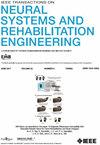Watching Positive Videos Facilitates Mental Fatigue Recovery: A Task fMRI Study
IF 5.2
2区 医学
Q2 ENGINEERING, BIOMEDICAL
IEEE Transactions on Neural Systems and Rehabilitation Engineering
Pub Date : 2025-09-26
DOI:10.1109/TNSRE.2025.3614861
引用次数: 0
Abstract
Timely intervention for mental fatigue is necessary to mitigate adverse consequences and promote rapid recovery. As the mobile internet and new media platforms rapidly expand, people are increasingly watching videos during breaks. While positive emotions are known to boost cognition and behavior, their potential role in fatigue recovery and the underlying neural mechanisms remain underexplored. The present study aims to investigate the effect of watching positive videos on fatigue-related behavioral performance and brain network reorganization during the psychomotor vigilance task (PVT). Specifically, 27 participants underwent a two-session within-subject experiment during fMRI scanning, where each session consisted of a 30-min PVT with a 3-min mid-task break involving either watching positive videos or only resting. Behaviorally, both break strategies could reverse fatigue state transiently, but the观看积极的视频有助于精神疲劳的恢复:一项任务功能磁共振成像研究。
及时干预精神疲劳是必要的,以减轻不良后果,促进快速恢复。随着移动互联网和新媒体平台的迅速发展,人们越来越多地在休息时间观看视频。虽然人们知道积极情绪可以促进认知和行为,但它们在疲劳恢复中的潜在作用和潜在的神经机制仍未得到充分探索。本研究旨在探讨观看积极视频对精神运动警觉性任务(PVT)中疲劳相关行为表现和脑网络重组的影响。具体来说,27名参与者在fMRI扫描期间进行了两组实验,其中每组包括30分钟的PVT和3分钟的任务中间休息,包括观看积极的视频或只休息。在行为上,两种休息策略都能短暂地逆转疲劳状态,但与休息休息相比,积极休息对PVT反应时间的改善更明显。此外,大脑网络评估显示出发散性的整体效率变化,表现为在休息后立即改善,但在任务结束时显著下降,而在休息-休息阶段则呈现相反的趋势。此外,节点测量还揭示了正中断对视觉网络节点效率的延迟效应。综上所述,这些研究结果强调了观看积极视频作为一种切实可行的缓解高要求认知任务中精神疲劳的策略的潜力,并表明观看积极视频不仅影响行为层面,还通过动态调节大脑网络促进疲劳恢复,为理解疲劳恢复背后的情绪-认知相互作用提供了新的证据。
本文章由计算机程序翻译,如有差异,请以英文原文为准。
求助全文
约1分钟内获得全文
求助全文
来源期刊
CiteScore
8.60
自引率
8.20%
发文量
479
审稿时长
6-12 weeks
期刊介绍:
Rehabilitative and neural aspects of biomedical engineering, including functional electrical stimulation, acoustic dynamics, human performance measurement and analysis, nerve stimulation, electromyography, motor control and stimulation; and hardware and software applications for rehabilitation engineering and assistive devices.

 求助内容:
求助内容: 应助结果提醒方式:
应助结果提醒方式:


